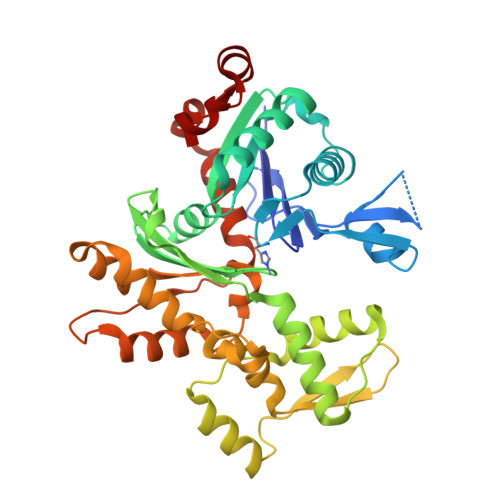Chivosazole A Modulates Protein-Protein Interactions of Actin.
Wang, S., Gegenfurtner, F.A., Crevenna, A.H., Ziegenhain, C., Kliesmete, Z., Enard, W., Muller, R., Vollmar, A.M., Schneider, S., Zahler, S.(2019) J Nat Prod 82: 1961-1970
- PubMed: 31260301
- DOI: https://doi.org/10.1021/acs.jnatprod.9b00335
- Primary Citation of Related Structures:
6QRI - PubMed Abstract:
Actin is a protein of central importance for many cellular key processes. It is regulated by local interactions with a large number of actin binding proteins (ABPs). Various compounds are known to either increase or decrease the polymerization dynamics of actin. However, no actin binding compound has been developed for clinical applications yet because of selectivity issues. We provide a crystal structure of the natural product chivosazole A (ChivoA) bound to actin and show that-in addition to inhibiting nucleation, polymerization, and severing of F-actin filaments-it selectively modulates binding of ABPs to G-actin: Although unphysiological actin dimers are induced by ChivoA, interaction with gelsolin, profilin, cofilin, and thymosin-β4 is inhibited. Moreover, ChivoA causes transcriptional effects differing from latrunculin B, an actin binder with a different binding site. Our data show that ChivoA and related compounds could serve as scaffolds for the development of actin binding molecules selectively targeting specific actin functions.
- Department of Pharmacy , Ludwig-Maximilians-University , 81377 Munich , Germany.
Organizational Affiliation:




















